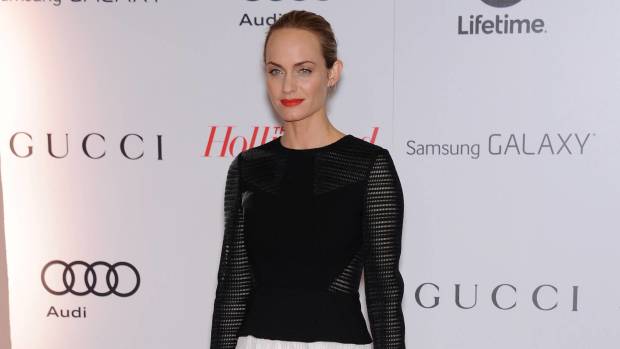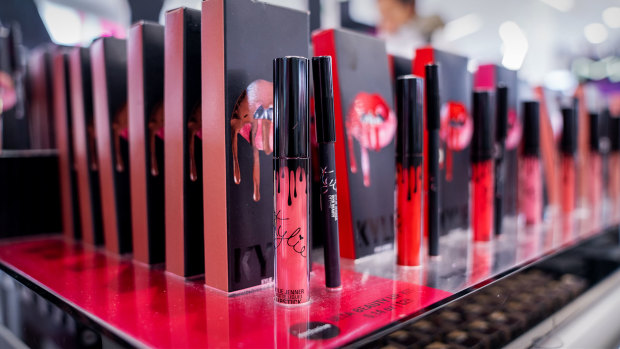
It's hard to believe that just a couple of years ago many Americans had more savings than ever before and were paying down their credit-card debts at a rapid clip.
In a world shut down by the coronavirus pandemic, economic-impact payments delivered to millions of Americans, suspended student-loan payments, and a sudden halt to many of life's extraneous (but enjoyable) expenses, such as going out to meals, movies, salons and concerts, made saving relatively easy.
DON'T MISS: Beloved Retail Chain Likely Faces Liquidation
But the world has since reopened and rising inflation has put an end to the fervor of consumer spending that marked the early 2020s.
Some brands are suffering; earnings call after earnings call cautions investors that more parsimonious consumers are replacing the ones who were once so willing to part with their (mostly) hard-earned dollars.
Many retailers, including Target, Walmart, and Bath & Body Works, have warned that splurge purchases seem to be dwindling as shoppers focus more on core necessities like groceries as the cost of living goes up around the country.
That is, mostly.
Beauty Is Resilient Despite the Economy
Sure, Walmart, Target, and other consumer-staples groups might be bracing for impact as consumers keep a closer eye on their expenses. But one key sector is showing incredible resilience no matter what the broad economy is doing.
That's the beauty industry, which has always sort of been around. But over the past 70 years -- and especially in the past five to 10 -- beauty has risen from a few products most women might keep in the medicine cabinet (cold cream, mascara, lipstick, and maybe a compact powder) to something almost cultish.
Remember, Estée Lauder was founded in 1946, when a postwar America was high on unprecedented victory, good economic times, and female empowerment.
And so begins the modern story of the business of beauty. What had previously been viewed as a few commodity items has now been marketed as a lifestyle, a must-have, an aspirational world marked by vanity and celebrity, and something you can't leave the house without.
This is especially true in an increasingly digital age, where younger generations grow up looking at themselves (and others) on screens. Young people are increasingly aware of how they look, how others look, and what's on trend.
This has proved especially profitable for beauty companies, many of which have built platforms and followings of millions simply by using an app or two. One need only look at Kylie Cosmetics, founded by Kardashian sister Kylie Jenner, to understand the gravity and impact of a celebrity on Instagram with a certain look. It simply sells itself.

David Dee Delgado/Getty Images
And beauty is especially resilient compared to other sectors during economic downturns. The lipstick effect, a commonly studied socioeconomic theory that posits that beauty splurges go up when markets go down, makes sense. Things are bad -- why not buy a $7 lipstick to cheer yourself up?
"If you're sad, add more lipstick and attack," Coco Chanel once famously said.
Luxury Beauty Comes at a Cost -- but That Might Be Why It Works
Another theory posits that the more expensive something is, the more it is perceived to be good quality, superior, and more desirable.
That theory is perhaps nowhere more apparent than in the recent launch of Lyma, a skin-care and beauty company that leverages "the most powerful epigenetic skin science in existence" to improve your appearance.
All that for a starting price of $655.
Lyma seems to have all the ingredients that make a beauty product in 2023 thrive. Pricey starting points? Check. Model ambassador? None other than the Vogue cover girl Amber Valletta. Check. A growing presence on social media? Check. Scarcity? Check again.
Lyma's skin care, developed with the help of longevity scientists, is limited at the minute. You can order a 30-day supply of Lyma Skincare Serum and Cream for $655, with the option to reorder if you love it, of course. When the brand launched, it garnered a 30,000-person waitlist almost instantly. Both Kim Kardashian and Kate Hudson have promoted Lyma's daily supplement, and Gwyneth Paltrow likes its £1,999 (almost $2,600) at-home laser treatment.
"Health and beauty is no longer considered a luxury. ... It’s the way today’s consumer prioritises their money, into health and into their skin," Lyma Founder Lucy Goff said.
Goff claims Lyma's clientele isn't the megarich but a "cross section" of people who take their skin care seriously.
And now more than ever, that's everyone. Some of TikTok's top trends of 2023 are "skinimalism," which is intended to focus more on skin care and quality ingredients, and "natural glow," also focused on a clean base of skin. Increasingly, it's a good time to be in the luxury beauty business.







